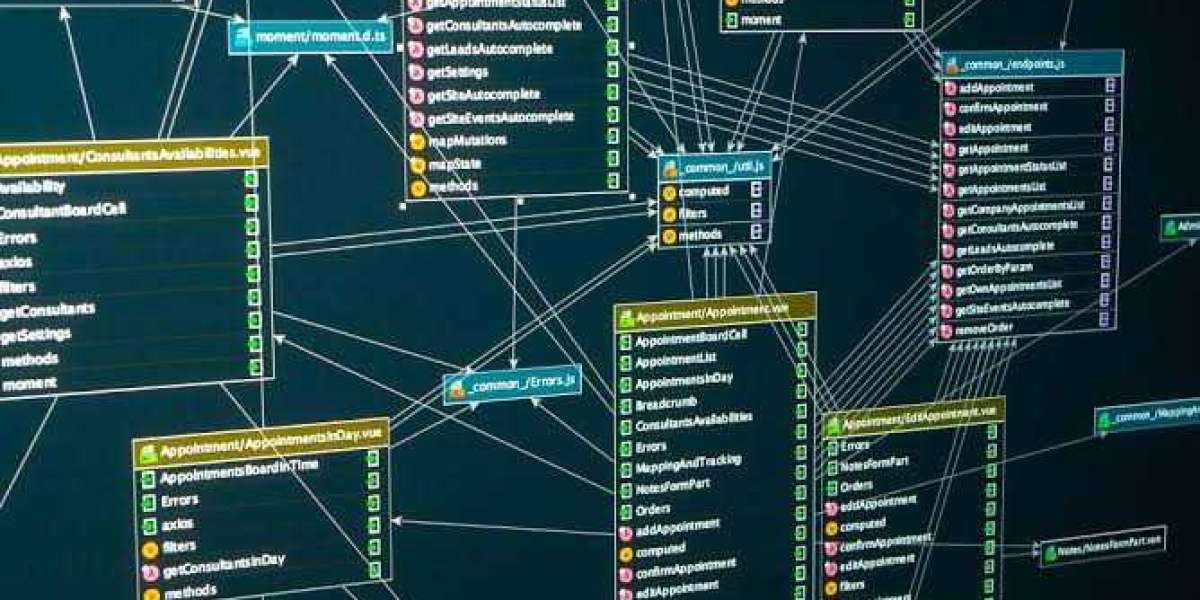Becoming a generator mechanic can be a rewarding career choice for individuals with a passion for mechanical technology and a keen interest in ensuring reliable power generation. Generator mechanics play a crucial role in maintaining and repairing generators, ensuring they function efficiently. Here are six steps to guide you on the path to becoming a skilled generator mechanic.
Educational Foundation
Begin by acquiring a solid educational foundation. A high school diploma or equivalent is typically the minimum requirement. Courses in mathematics, physics, and technical drawing can provide a strong basis for understanding the principles that govern generator mechanics. Consider pursuing vocational training or enrolling in a technical school to gain hands-on experience with machinery and tools.
Here's a breakdown of the steps you can take to build this foundation:
High School Education
Obtain a high school diploma or its equivalent. A strong emphasis on subjects like mathematics, physics, and mechanical drawing can lay the groundwork for understanding the fundamental principles that govern generator mechanics.
Vocational Training or Technical School
Consider pursuing vocational training programs or enrolling in a technology institution with a focus in technical education that offer courses related to mechanics, machinery, and electrical systems.
Look for programs that provide hands-on experience with tools and machinery used in the field of generator mechanics.
Mechanical Drawing Courses
Take courses in mechanical drawing to develop skills in creating detailed technical drawings and schematics. This is essential for understanding the design and structure of generators.
Mathematics and Physics Courses
Strengthen your knowledge of mathematics, especially concepts related to algebra, geometry, and calculus. This will be valuable for solving engineering problems and making precise calculations.
Take physics courses to understand the principles of motion, force, and energy, which are essential in the study of generator mechanics.
Hands-On Experience
Seek opportunities for hands-on experience, either through internships, apprenticeships, or practical projects. This practical exposure will help you apply theoretical knowledge to real-world situations and develop practical skills.
Stay Informed
Stay informed about advancements in generator technology, electrical systems, and related fields. This can be done through reading industry publications, attending workshops, and participating in relevant forums or online communities.
Certifications
Consider obtaining certifications relevant to generator mechanics. Certifications can validate your skills and knowledge, making you more competitive in the job market.
Remember to tailor your educational path based on your specific interests within the field of generator mechanics, whether it be focused on residential, commercial, or industrial generators. Keep in mind that ongoing learning and staying updated with industry trends will be essential throughout your career.
Technical Training Programs
Seek out technical training programs that focus on generator maintenance and repair. Many vocational schools and community colleges offer specific courses or certifications in power generation technology. Look for programs that cover topics such as electrical systems, engine maintenance, and troubleshooting techniques. This practical knowledge will be invaluable in your future career as a generator mechanic.
Here are some additional tips to enhance your training experience:
Accreditation and Certification
Choose programs that are accredited by relevant industry bodies. Accreditation ensures that the training meets specific standards set by professionals in the field.
Look for certifications offered by recognized organizations, as these can enhance your credibility and employability.
Hands-On Experience
Prioritize programs that include hands-on training with actual generators. Practical experience is crucial for developing skills in maintenance and repair.
Seek out programs that provide access to a variety of generator models, as this exposure will broaden your expertise.
Industry-Relevant Curriculum
Ensure that the training curriculum aligns with industry standards and covers a wide range of topics related to generator technology.
Look for courses that include subjects like electrical systems, engine diagnostics, fuel systems, and control panel troubleshooting.
Instructors' Qualifications
Research the qualifications and experience of the instructors. Instructors with real-world experience in generator maintenance bring practical insights to the classroom.
Consider programs where instructors have relevant certifications or have worked in the power generation industry.
Networking Opportunities
Choose programs that will help you to network with professionals in the field for work opportunities. Networking can provide valuable insights, job leads, and mentorship opportunities.
Attend industry events or workshops associated with your training program to connect with potential employers and experienced professionals.
Internship or Apprenticeship Opportunities
Look for programs that provide internship or apprenticeship opportunities. Practical on-the-job training can be immensely beneficial in applying theoretical knowledge.
An internship can also serve as a stepping stone to securing a full-time position in the industry after completing your training.
Stay Updated with Industry Trends
Choose programs that emphasize staying current with industry trends and emerging technologies. The power generation field is dynamic, and continuous learning is essential for career growth.
Consider joining professional associations related to power generation to stay informed about the latest developments.
Remember to thoroughly research and compare different technical training programs to find the one that best aligns with your career goals and provides a comprehensive education in generator maintenance and repair.
Apprenticeship Opportunities
Gain real-world experience through apprenticeship opportunities. Seek out apprenticeships with experienced generator mechanics or at power generation facilities. This hands-on training will provide you with the skills and knowledge necessary to diagnose and repair various generator issues. Learn from seasoned professionals and ask questions to deepen your understanding of the field.
Here are some tips for making the most of your apprenticeship:
Research and Identify Opportunities
Look for power generation facilities, maintenance companies, or generator service providers that offer apprenticeship programs.
Research potential mentors or experienced professionals in the field who may be willing to take on apprentices.
Networking
Attend industry events, workshops, and seminars to connect with professionals in the power generation sector.
Join online forums or social media groups related to generator mechanics to expand your network and learn about available apprenticeship opportunities.
Prepare a Resume and Cover Letter
Tailor your resume to highlight relevant skills, any related coursework, or academic achievements.
Write a compelling cover letter expressing your genuine interest in generator mechanics and your eagerness to learn through hands-on experience.
Also Read: 6 Best Decentralized Cryptocurrency Exchanges in 2024
Demonstrate Enthusiasm and Willingness to Learn
During interviews or discussions with potential mentors, express your passion for the field and your eagerness to learn from experienced professionals.
Emphasize your commitment to acquiring practical skills that will contribute to your effectiveness as a generator mechanic.
Ask Thoughtful Questions
Be proactive in seeking knowledge by asking questions about specific tasks, troubleshooting methods, and industry best practices.
Showing genuine curiosity and a desire to understand the intricacies of generator mechanics will leave a positive impression on your mentor.
Be Observant and Take Initiative
Pay close attention to details and observe how experienced mechanics approach different tasks.
Volunteer for additional responsibilities when appropriate, showcasing your initiative and commitment to your apprenticeship.
Document Your Learning
Keep a journal or notebook to document your daily experiences, lessons learned, and any challenges you encounter.
Reviewing and reflecting on your progress can help reinforce your understanding and identify areas for improvement.
Build a Professional Reputation
Demonstrate a strong work ethic, reliability, and a commitment to safety.
Treat every task, no matter how small, with diligence and professionalism, as this will contribute to building a positive reputation within the industry.
Seek Feedback
Request feedback from your mentor regularly to identify areas for improvement and gauge your progress.
Use constructive criticism as a tool for continuous growth and refinement of your skills.
Stay Updated and Engaged
Keep abreast of industry developments, new technologies, and best practices in generator mechanics.
Actively participate in relevant training sessions or workshops to enhance your knowledge and skills.
By actively participating in an apprenticeship and implementing these strategies, you'll not only gain practical skills but also build a strong foundation for a successful career in generator mechanics.
Certifications
Consider obtaining relevant certifications to enhance your credibility as a generator mechanic. Organizations like the International Association of Generator Technicians (IAGT) and the Electronics Technicians Association (ETA) offer certifications in generator maintenance and repair. These certifications demonstrate your proficiency and commitment to excellence in the field.
Stay Informed and Network
Stay informed about the latest advancements in generator technology and industry trends. Join professional organizations, attend workshops, and participate in networking events. Building a network within the industry can open doors to job opportunities and provide valuable insights from experienced professionals.
Continued Professional Development
Generator technology is continually evolving, so commit to ongoing professional development. Attend workshops, seminars, and training sessions to stay abreast of new technologies and techniques. Consider pursuing advanced certifications or specialized training in areas such as renewable energy systems, which can broaden your skill set and make you more competitive in the job market.
Conclusion: Becoming a generator mechanic requires a combination of education, hands-on experience, and a commitment to continuous learning. By following these six steps, you can develop the skills and knowledge necessary to excel in this dynamic and essential field. Whether you're maintaining generators in industrial settings or contributing to the growing field of renewable energy, your role as a generator mechanic is crucial to ensuring a reliable power supply for various applications.




